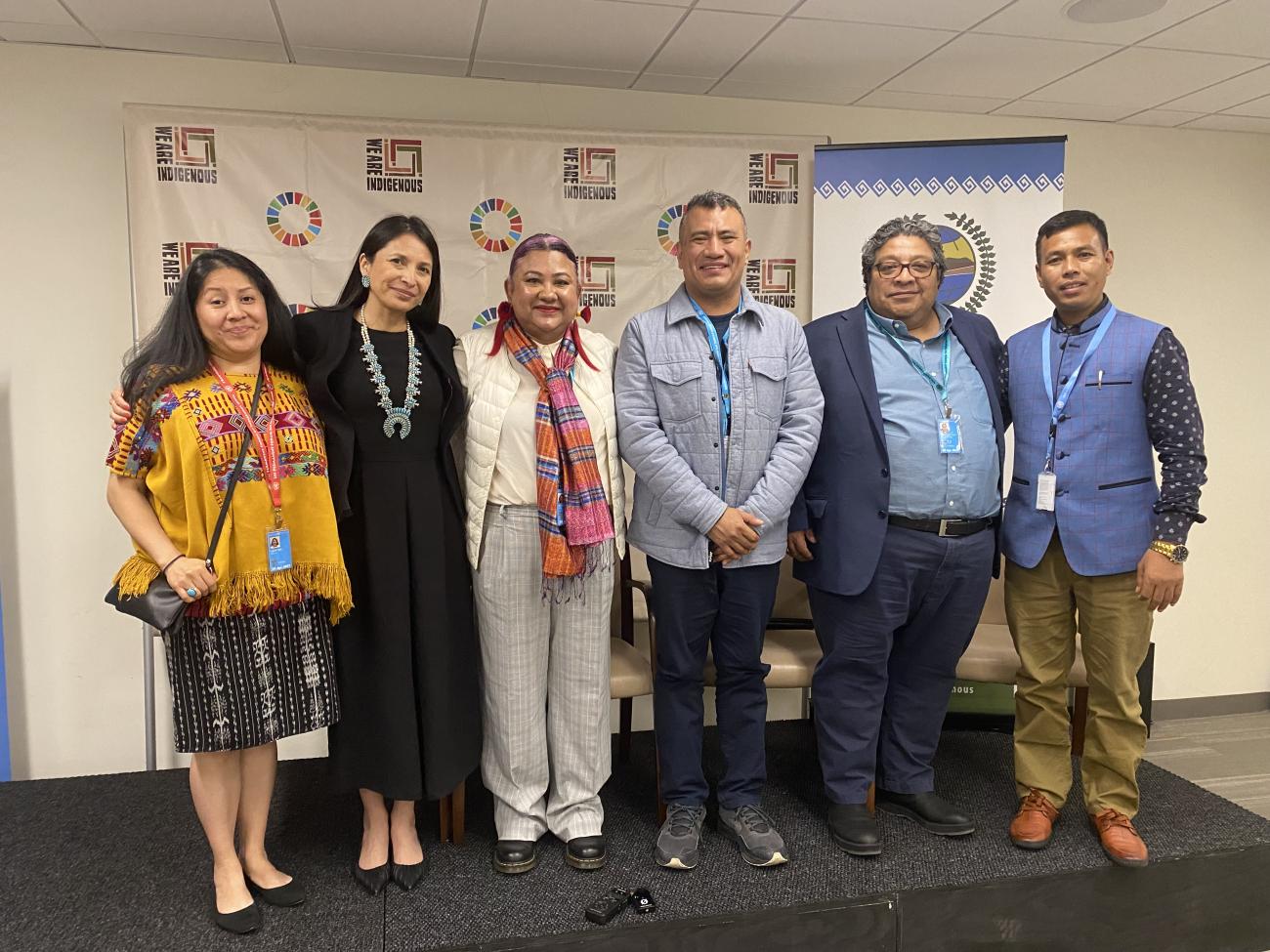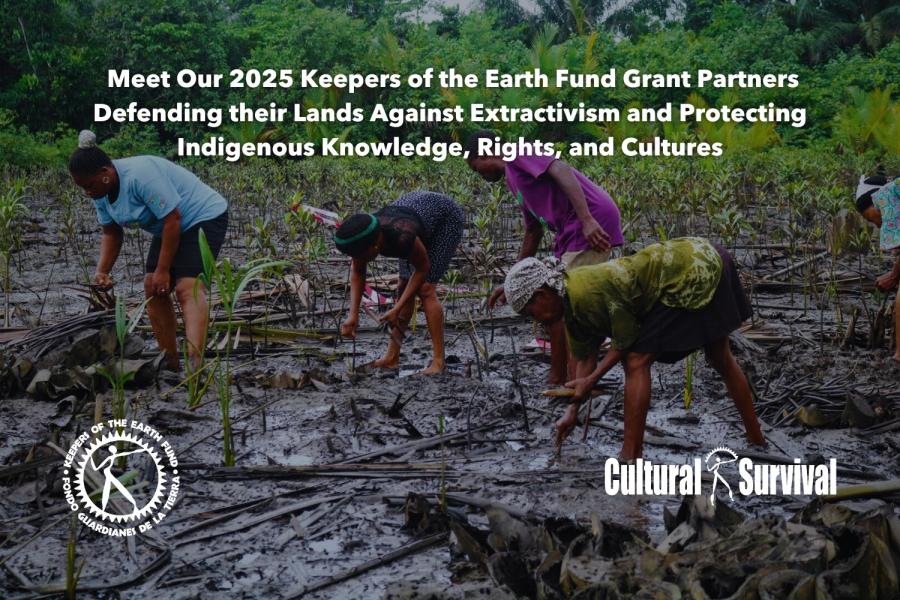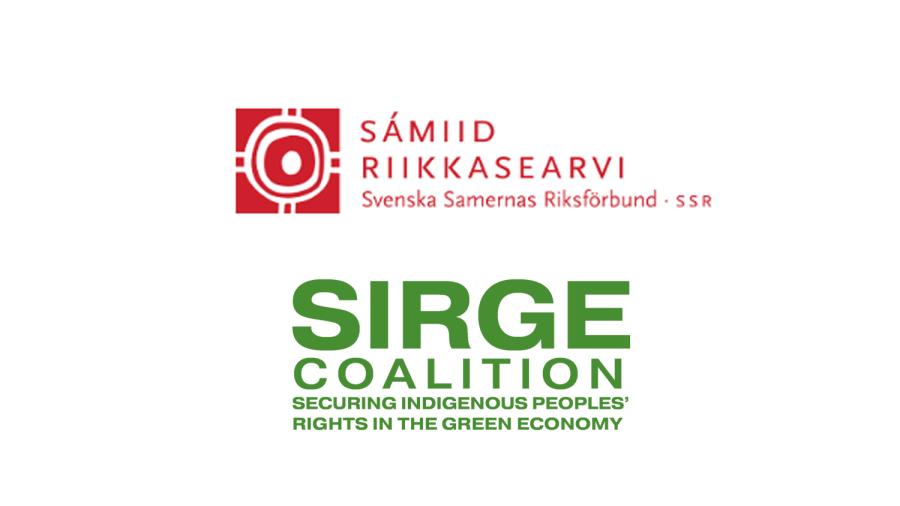
April 17- May 28, 2023
Agenda Item 4: Discussion on the six mandated areas of the Permanent Forum w/ reference to the UNDRIP
Intervention by the Global Indigenous Media Caucus submitted by Jenni Monet (Laguna Pueblo)
Thank you Mr. Chair, and congratulations on your re-election to lead the Permanent Forum. Guwadzi Hauba. Greetings. My name is Jenni Monet, Tribal citizen of Laguna Pueblo speaking today on behalf of the Global Indigenous Media Caucus.
We, as a collective of Indigenous journalists and community media makers from the seven socio-cultural regions of the world, express deep gratitude for the Indigenous Peoples who have been governing and stewarding our lands, forests, and water since time immemorial. At the same time, we recognize that many of these traditional and contemporary ways of knowing are under persistent attack - by tokenization, multinational resource extraction, and criminalization. Furthermore, journalism and all other modes of media calling attention to these issues have also met similar systemic injustices - including intimidation, violence, and even death - resulting in a lack of effective press coverage from our communities. Yet, little attention has been paid to this obstruction of carrying out fully Article 16 of the U.N. Declaration on the Rights of Indigenous Peoples: the right to freely establish and/or access media that duly reflects Indigenous realities.
In the last calendar year, an Indigenous reporter's murder in Colombia began making its way through the courts, alleging state military and local police were suppressing media coverage of deforestation in Cauca Valley. Last May in Honduras, a community radio correspondent was arrested and detained for several weeks after reporting on the forced displacement of the Lenca who helped halt a hydroelectric dam. And in the Philippines, cyber libel charges against an Indigenous editor were only recently dropped in a case involving coverage of a historic dam project on Indigenous Kalinga territory. But perhaps nothing illustrates the muzzling of Indigenous voices in the press more than the state of Indigenous media in Guatemala - one of the most criminalized countries for journalism today. Mayan radio stations still have not been legalized more than 26 years since this right was first guaranteed in the Guatemalan Peace Accords - including a 2021 judgment by the lnter-American Court of Human Rights that found the state responsible for violating the freedom of expression. Meanwhile, community reporters documenting transnational mining encroachment in their communities, there, are threatened and arrested repeatedly.
For these stated examples, the Global Indigenous Media Caucus is in full support of UNESCO's call heard earlier here today for a comprehensive study of the Indigenous right to media, in accordance with Article 16 in the UNDRIP, by the Expert Mechanism on the Rights of Indigenous Peoples.
Furthermore, we present the following recommendations to the UN Permanent Forum in commemoration of this year's conference theme highlighting an Indigenous rights-based approach to the climate crisis:
- That the Permanent Forum raises with U.N. agencies to urge and work with member states and the Indigenous Media Caucus to ensure the right and access to information by and for Indigenous Peoples is in accordance to Article 16 in the UNDRIP, including the equal distribution of economic support for Indigenous-minded and community-based media.
- That the Permanent Forum urges member states to consider cooperation, including with the Office of the U.N. High Commissioner for Human Rights and other relevant bodies, on effective approaches to protect Indigenous journalists and community-based reporters from criminalization and environmental violence.
Dawaa'e, Thank you Mr. Chair.



